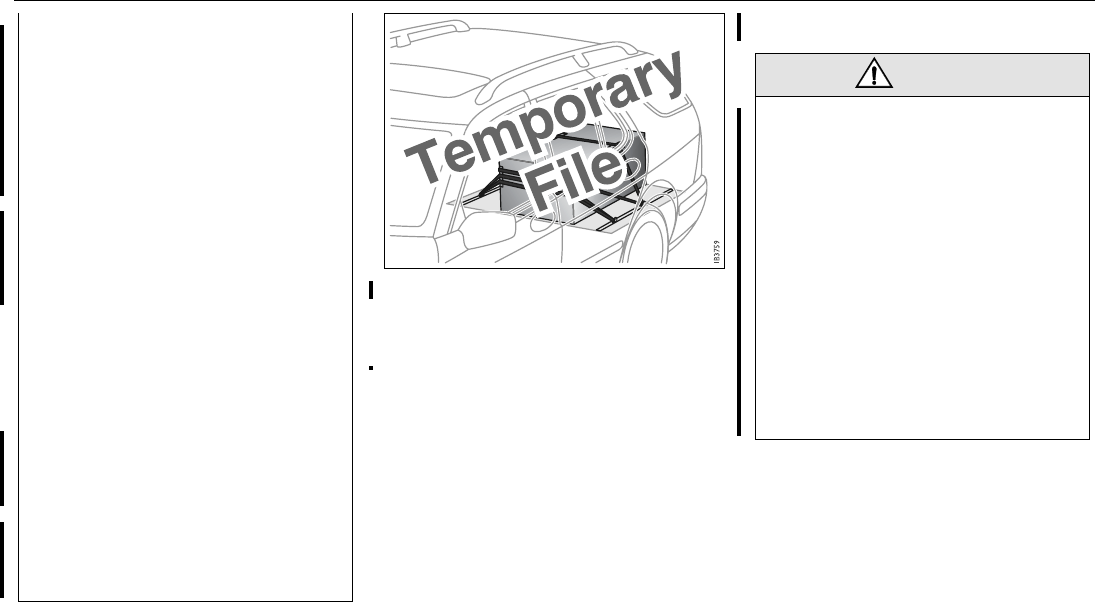
155Interior equipment
Cargo net 3
• If possible, avoid having the rear seat
folded down when driving with a heavy
load, because the anchoring possibili-
ties are restricted when the rear seat
is in this position. That the rear seat
is in the upright is a basic require-
ment for protection against cargo
displacement in the event of a
crash.
• Improve safety by fastening the outer
seatbelts. Check that the red "indica-
tor-flag" next to the opening handles is
not visible. If the red "indicator-flag" is
visible the backrest is not locked.
• Match your speed and driving style to
how the car is loaded. The handling
characteristics of the car can be
affected since a load in the trunk will
alter the car’s center of gravity.
• An object weighing 55 lbs. (25 kg)
corresponds to a weight of 2200 lbs.
(1,000 kg) in a front-end collision at
32 mph (50 km/h).
• Adjust the car’s load (passengers and
luggage) so that the gross vehicle
weight and the axle weight are not
exceeded, see page 294.
WARNING
• Never overload the cargo net 3. If the
elastic breaks this may cause
personal injury. Do not use a cargo net
that shows signs of wear.
• Never use the elastic floor net 3 and
elastic side net 3 when the rear seat is
folded down. These nets are only
intended to keep light objects tidy, not
for the anchoring of loads.
• Secure the load in the luggage
compartment firmly. Using a cargo net
is not considered as load securing.
• The only purpose of a cargo net is to
prevent light objects from being
thrown forward into the cabin during
heavy breaking.
Example of cargo anchoring
93U SM 06.book Page 155 Friday, February 18, 2005 1:15 PM


















